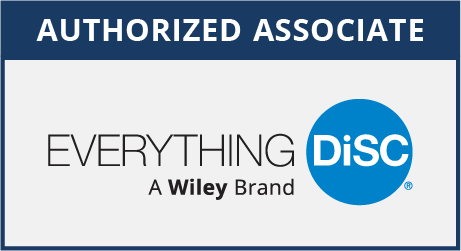Interviewing
Interview Categories
Informational Interview – networking and research
Screening Interview – screen you in/screen you out – often by phone
Selection or Hiring Interview – leads the employer, AND YOU, to the hiring decision
Interview Formats
Formal Telephone Interview
One-on-One Interview
Panel Interview
Marathon Interview
Video/Live Conference
Group Interview
Recorded Interview
“Interview” in the applicant screening process
Job Interview Truths
The purpose of the first interview is to obtain the next interview. Often a recruiter is the first interview that may have limited knowledge of the position – they are the firewall.
The decision to consider a candidate for hiring can often be made in the first five minutes.
Relationship building is key – understand communication types.
Being prepared and understanding the interview process can help you maintain control during the interview.
Preparing for the Interview
Learn about the company, the position, the interviewers, and most importantly, the needs that exist.
Determine ahead of time how to best handle “awkward” questions. Long, complicated explanations almost always backfire.
Determine what information YOU want to gather during the meeting.
Prepare your accomplishment stories to highlight critical skill sets.
Work out a strategy.
Demonstrate enthusiasm!!
Pay attention to clothing and grooming.
Arrange your schedule so there are no distractions.
Types of Interview Questions:
Traditional
Behavioral / Competency
Stress
Action
Role Play
Presentation
Traditional Interview Questions
Includes questions such as “Tell Me About Yourself” and “Why Do You Want to Work for This Company?”
Interviewer is looking for the “Three C’s”: Capabilities, Compatibility, and Chemistry
Be prepared, succinct, positive, and specific
Specific CAR stories will help you succeed in traditional interviews too!
Behavioral / Competency Interview Questions
Asking for specific examples of demonstration of specific skill sets, based on the premise that past behavior is the best indicator of future performance.
Questions will start with “Provide a specific example of a time . . .” or “Describe a time when you . . .”
Expect follow-up questions.
Prepare: know the position and skill sets needed and have your accomplishment stories ready!
Use your CAR stories!!
(also known as PAR or STAR stories)
Context
Actions
Results
1 – 2 minutes in length, specific but succinct
End negative stories with a positive
Stress Interview Questions
May include questions like:
“ You have 5 minutes. Tell me why we should hire you?”
“ What makes you think you can do this job?”
Stay calm and patient.
Don’t rush your answers.
Action or Audition Interviews
You may be asked to “sit in” on a situation that is typical to the job. This can be done in a Role Play.
You may be asked to analyze and solve a problem or situation – such as a programmer may have to do a simulation
You may be asked to develop and present a presentation on a particular topic
Portfolios should be considered in specific professions
Employment Assessments
Assessment Categories:
Personality
Cognitive
Interests
Employment Assessments
Many assessments are now administered online.
Personality and Interests Assessments – you typically want to “go with your gut”. Don’t get caught up in what you think they want to hear.
Cognitive Assessments – fully understand the parameters; are they timed, should you answer if you can narrow down the options, etc.
The Job Interview
During the interview
Maintain good posture – Don’t fidget!
Maintain good eye contact
Concentrate – Be present
Use good examples in response to Behavioral Questions – Remember your Accomplishment Statements
Turn negative questions into positive responses & keep it brief
When given the chance – ask questions
Try to avoid salary discussions too soon (Negotiable)
Ask about next steps or follow up
Thank the interviewer for their time and consideration – get business card if possible
Thank you note
Questions for You to Ask
Demonstrate that you are interested and that you care!!
Topics for questioning include:
Responsibilities/Authority
Priorities of the Position
Budget
Team and Management Make-up and Style
Future of the Position/Department/Company
Closing the Interview/Follow-up
Close the interview by clearly stating you are interested in the position.
De-brief yourself immediately after every interview.
Send a follow-up thank you message to each of the individuals you interviewed with. Recap critical information.








